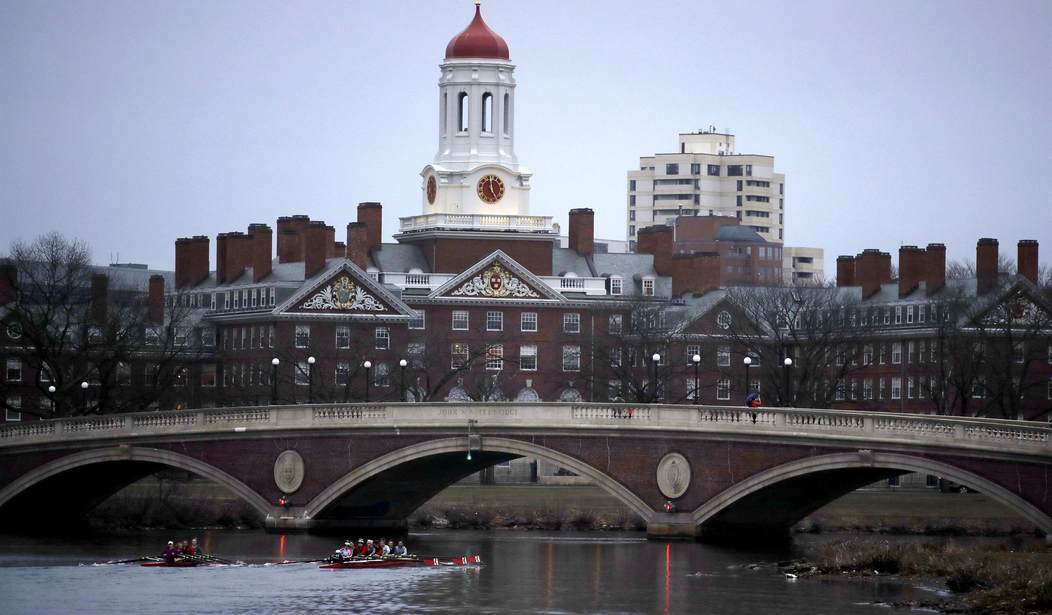Americans are not racist people. It is a great source of pride to us that our countrymen or their ancestors hail from all around the world, making our nation both uniquely diverse and uniquely united within a national cultural identity.
An example of our national cultural unity and rejection of racism is that the majority of Americans of all identities disapprove of the idea that race should be a consideration for college admissions. According to the Pew Research Center, nearly three-quarters of adults (73%) reject racism from college admissions boards. This includes 78% of whites, 62% of blacks, 65% of Hispanics, and 58% of Asians. It’s odd that Asians are the most accepting group, because they are also the most discriminated against but nonetheless, Americans’ negative view of racial admissions has been pretty constant for quite some time.
Today, the Supreme Court took up a pair of cases that have the potential to bring college admissions into line both with public opinion and federal law. Both suits were filed by an organization called Students for Fair Admissions (SFFA), which assists students who have been racially discriminated against by institutes of higher education. The first case, Students for Fair Admissions v. Harvard, was decided in favor of the university by the Boston-based 1st Circuit Court of Appeals in 2018. The second case, Students for Fair Admission v. University of North Carolina, was still under review by the 4th Circuit appellate court after a federal judge ruled in UNC’s favor last year.
The lower courts that have heard these cases did not deny that the discrimination took place but excused it as a necessary evil in the universities’ pursuit of diverse student bodies.
Related: Racist School Board Votes to Segregate Minority Teachers, Pay People Less Based on Skin Color
In a statement, SFFA founder and president Edward Blum said, “We are grateful the Supreme Court accepted these important cases for review. It is our hope that the justices will end the use of race as an admissions factor at Harvard, UNC and all colleges and universities.” He further stated, “In a multi-racial, multi-ethnic nation like ours, the college admissions bar cannot be raised for some races and ethnic groups but lowered for others. Our nation cannot remedy past discrimination and racial preferences with new discrimination and different racial preferences.”
Reuters summarizes the cases and rationale:
Blum’s group sued Harvard in 2014, accusing it of violating Title VI of the Civil Rights Act of 1964, which bars discrimination based on race, color or national origin under any program or activity receiving federal financial assistance. Harvard is a private university founded in 1636 and located in Cambridge, Massachusetts. It receives federal funds.
The group also sued UNC in 2014, accusing it of impermissibly using race as the main factor in admissions in violation of the U.S. Constitution’s 14th Amendment guarantee of equal protection under the law. UNC, located in Chapel Hill and chartered in 1789, is North Carolina’s flagship public university.
In past cases, the Supremes have ruled that racial discrimination is acceptable in college admissions because there is a compelling interest in creating diversity among matriculants. In the 1978 case Regents of the University of California v. Bakke, SCOTUS allowed race to be considered as an acceptance factor so long as racial quotas were not enforced.
The justices are expected to hear arguments in their next term, which means arguments could come as soon as the fall of 2022 and a decision no later than June 2023. The court may ultimately leave the lower court decisions intact, further narrow the use of racial consideration in college admissions, or reject it altogether.
“Harvard and the University of North Carolina have racially gerrymandered their freshman classes in order to achieve prescribed racial quotas. Every college applicant should be judged as a unique individual, not as some representative of a racial or ethnic group,” says Blum. “The cornerstone of our nation’s civil rights laws is the principle that an individual’s race should not be used to help or harm them in their life’s endeavors. We hope the Supreme Court will use these cases to begin the restoration of the colorblind legal covenant that holds together Americans of all races and ethnicities.”
If the court rejects racial discrimination in college admissions, U.S. colleges and universities will be forced to give up either the practice of racial bias or the flow of sweet government dollars they receive. Harvard University boasts the world’s largest academic endowment, estimated at over $53 billion last June. If it is so important to the university to discriminate against incoming freshmen by skin color, it could easily forego the government dollars and free itself from being bound by federal law. One wonders why on earth such a wealthy institution is receiving taxpayer money to begin with.










Join the conversation as a VIP Member